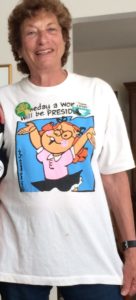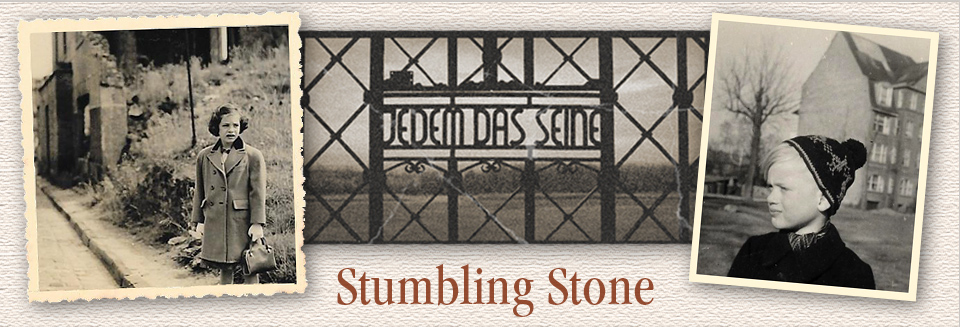Punditry: Who Knows What?
By Julie Freestone and Rudi Raab
This is not a blog about politics specifically, but let’s start with this. Maybe you can call it the Hillary Clinton syndrome. Rudi was in Germany for that infamous election. Julie was in Napa with Jane and Janet and a chilled bottle of champagne, watching the election results, wearing her “someday a woman will be president” T-shirt that she’s had for years. We all know what happened. In spite of pundit Nate Silver’s statistics and the predictions of nearly every major polling company, Hillary lost.

The champagne was chilling and the victory was at hand…until it wasnt
So the question— who really knows and how much can you depend on what you read and hear— is especially relevant today for a number of reasons. We wonder if it doesn’t eventually all come down to how much uncertainty we can each live with and what we do to cope and fill in the blanks.
One point here. We’re not talking about trusting valid information. We are experiencing a pandemic. The earth isn’t flat. Scientists agree that human actions are contributing to and causing a climate change. Voter fraud is rare, drinking disinfectant cannot kill the corona virus (but it could kill you) and so on.
Cases of the virus
Let’s start with one specific corona virus issue: how many cases of COVID there are. This is a critical question because much of the question of when to reopen businesses and resume “normal” life in part depends on that statistic. And yet, as Julie has been chanting every morning when Rudi reads to her while yoga is being performed, the number right now is iffy. It depends on how many tests are being done and, maddeningly, even after all this time and statements to the contrary, there are still many people who probably should have been tested who haven’t been.
Developing a cure, vaccine etc
Let’s move on, just to one day’s issue of the newspaper, and what led us to take a deep breath and explore this topic. Keep in mind that we understand that newspapers have to write about something. And beat reporters, an endangered species anyway, have a really finite collection of happenings to cover when everything is closed down. And one more thing: this is not a critique of the San Francisco Chronicle nor of the journalists who write for it. Julie reads that paper on her Kindle in the morning and Rudi reads it while drinking coffee in bed and that’s why we’re focusing on that publication.
Headline: “Research on drugs for virus broadens”. O.K. Sign us up. We absolutely definitely want them to find a way to treat this wretched disease. Even if they can’t cure it, anything that would mitigate the symptoms or reduce the time in the hospital would be better than nothing. First we heard about remdesivir. For a few weeks, it helped calm some of us down. Obviously not because we took it but just because it looked hopeful. So in the Chronicle, there’s a long article about the many drug companies working on treatments that could keep people out the hospital or alleviate symptoms. It’s a long article and there are a lot of drug companies.
Dr. Anthony Fauci is quoted. He says about remdesivir that it’s “quite good news,” and an “important proof of concept.” Not turning cartwheels. Caution. The spokesperson for Gilead, the company working on the drug, pointed out it would take the collective efforts of many organizations across the private and public sector. “Gilead and many of our peers in the biopharmaceutical industry are working around the clock to develop treatments, vaccines and diagnostics,” he said. That’s good news but clearly we are not at the finish line.
The fate of cities
Moving on to another headline: Crisis could mean cities’ death – or rebirth. John King is a gifted wrtier who is the paper’s urban design critic and his article is worth reading for a number of reasons. He puts the current situation and the challenges cities face in a historical context, comparing it to what happened when San Francisco was virtually destroyed during the 1906 earthquake and also when the return of millions of men from the war in 1945 was predicted to cause another Great Depression.
What is refreshing about King’s information is that he doesn’t claim to know the answer. He isn’t really even trying to predict what will happen. “Depending on which supposedly omniscient source you prefer, the specter of a lethal virus that can be transmitted by air or a simple handshake signals the end to dense cities once and for all or a chance to return to the creative, inclusive urban ideal.” King says that just like political “punditry”, experts are happy to explain how the current crisis proves the point they’ve been making all along. He says the past 120 years of urban history could prove much of what we’re hearing wrong. (Read the article to find out more)
Ask Amy
` Even Ask Amy, the advice column, is in the mix about who knows what’s right. A reader wrote to suggest Amy’s answer to whether you could get COVID more than once was wrong. Amy said, “I wrote ‘as of this writing there are some reports of people having this illness more than once.’ My columns are written two weeks in advance of publication and cannot keep pace with research about this disease. That’s why I focus on relationship issues and this pandemic has raised many of those.”
And her point is well taken. What might have been possibly true two weeks ago could now possibly be not true. So what’s the bottom line? Facts are facts, until they aren’t? The jury is out? Stay in your own lane and stick to what you know?
At this point we know this for sure: the sun will come up tomorrow.
Rudi Raab and Julie Freestone wrote Stumbling Stone based on their true life stories. They decided to make it a novel because they didn’t know everything about some parts of the story. So they were able to make some things up because it’s fiction.
